
Usual disclaimers apply, as this is nothing more than a collection of thoughts and ideas, which lack any empirical evidence and need to be subjected to deep research, data collection and analysis and peer-review. This series aims to raise questions, discussions and ideas about the possibility of exploring/engaging History through gaming.
In this 101 we will explore the idea of video games as a medium to History and create a basic frame for future entries by explaining basic concepts and doing an overview of the whole topic, intended to establish some basic notions from which one can work upon.
The series will follow these topics as seen ahead:
- Engaging with History through Videogames?
- Engaging with History in different ways- Realism VS Authenticity/ Feeling VS Historical accuracy;
- The Big Caveat of Gaming Literacy
- What are Games good at?
- Making the Case for Commercial Instead of Educational Games;
- Using Gaming for Learning;
- Exploring Games and Genres;
It is not a surprise for the most of us that videogames, since it’s very own inception have been looking to real-life history as a source of inspiration time and time again. Games now-a-days play an ever important (and dominant) role in shaping the popular perception of history, with millions of copies of games like Battlefield, the Total War series, Company of Heroes and many others being sold every year, one must ask the question: How’s the current state of history representation in video games and how can we use it for learning?

The gaming medium and community and all its members has made a tremendous effort in the last decade to catapult gaming into the mainstream. Videogames are, as of today, the largest medium in the world, and have come from being seen as a hobby at its best and a waste of time at its worst and evolved to become a household name in entertainment in living rooms across the world. As a interactive medium, video games have the particular distinction of being able to envelop, engage, and capture an audience’s attention, interest and imagining and redirected it thinking about worlds, cultures, ideas, eras and problems in a way they might never face in real life, much less apply such skills to a time gone by. History stops being an abstraction to become a real-life interaction/puzzle/problem to solve that requires thought, skill and cognitive abilities.

I am to explore how this interactive media can be used and applied to captivate and incentivize historical thinking and a new, dynamic way to approach History that is not possible in the documentation-based thesis and dissertations of the academic universe. Games can be a unique way of allowing an audience to enter and engage with an historical-based constructed world. Players cease to be mere spectators to the historical spectacle and are asked as an agent of said universe, to interact with its rules and dilemmas, to be a part of the social and political fabric of the time they are inserted upon: be it as kings, commanders, soldiers, merchants or farmers, the interactive nature of gaming and its innate ability to immerse us into their universes can be a fertile ground for a new way of historical thinking based on interaction, action, reaction and, at the checkered-flag: Reflection. Simulated historical settings, even they’re not 100% that accurate-but this is a matter for another time- present themselves as based on history and offer a domain where an audience can engage with and be called upon to use historically based problem-solving skills and as such, are face to face with the same (even if simplified and simulated) problems of the past and more prone to develop a better understand of the course of History.

Let’s talk examples: In Hearts of Iron 4 you have pretty much unparalleled freedom to lead any nation on earth from the 1930’s to the end of the Second World War and how you do it it’s up to you. But as soon as you start to understand the game mechanics, and mainly supply systems and chains you begin to develop and understanding (even if a basic and flawed one) on how WW2 logistics might work and how they changed the course of army movements, priority targets and why some historical conquests were never achievable due to logistics trouble. Of course you can read an entire book about WW2 logistics and get to know how every little detail work but there’s nothing quite like launching a naval invasion and see your army cut off from being re-supplied because the left wing of your troops that were tasked with capturing the enemy’s ports were pushed back into the see and how you have 20 divisions encircled and unsupplied being slowly withered away from attrition. Really makes you think, uh? Is it an historically correct fact? No. Is it and historically accurate problem that real-life commanders had to face? Definitely yes.

Another strategic’em’up delight is the recently launched Fields of Glory 2 which tasks players in commanding all sorts of turn-based battles across the classical world and present an very interesting case study on its ability to be used for better understanding of its real life counterpart battles. Let’s say you boot up a quick battle and now you’re in charge of leading the Lusitanian’s charge against the Romans and you outnumber them 5 to 1 and aware of such difference, you decide to pour a large amount of units into their right flank and a few turns later and after some vicious fighting their units start to rout, one by one and as soon as you notice, you have those poor pilum throwing, wine chugging, gladiator cheering bastards surrounded, their morale starts to break and their commander loses the ability to react and they are forced to surrender or rout entirely. Of course, this is something you can also read in books but to see it unfold and to actually be the one leading is unique to gaming.
“History is no longer handed out to you; you are re-creating it, re-writing it, subverting it”
In this case you’re watching and actively engaging in what otherwise would be an abstract historical concept about warfare such as a supply chain and military moral. Of course books and documentaries are of the utmost importance to factual historical knowledge but lack in conveying engagement and “in the shoes” kind of Historical understanding and approach that we aim to achieve with this proposal.

- Engaging with History through gaming
Gaming is the perfect medium for exploring the real and the fantastic, for creating new worlds and interacting with new people, for exploring long gone eras and cultures lost to aeons past. A place of discovery and awe, for trial and errors, for innovation and counter-culture. Gaming pushes the boundaries of what is possible every day, new hardware gets developed at breaking-neck speed; software developers pull new and novel ideas out of their hat like some kind of rabbit grabbing magician and artists strive harder to attain new levels of realism and/or of artistic excellence.

Academic William Uricchio, in 2005 asked an importation question to the idea of videogames as a new medium for simulating history: “What happens if we push the notion of mediation beyond language, to the domain of game, enactment, or simulation? Does this allow us to slip out of the well-critiqued trap of representation? And if so, where does it land us?” Opposed to books, movies and even music, when the individual only stands as a mere observer, watching history unfold. In video games agency is given to the one playing it, he is not watching history, he is making it. History can now be re-written, battles can have their outcomes completely changed and civilizations can have a totally different path of progressing history.

Here arises on big problem for the representation of history in video games: History, as a discipline, basis itself in the notion that it constructs knowledge, a deeper and objective understanding of the past while video games, on the other hand, are designed and created to be won or to be lost, the idea of agency and playing is the key, video games, according to Espen Aarseth “are a process rather than an object, there can be no game without players playing it”. The video game player is more active in the production of “meaning” than the book reader or the moviegoer, so videogames offer and different relation to the narrative and experience, as well as a different relation to history by inference.
Authors of “Playing With the Past” define 3 dimensions that characterize every game, according to Arseth’s work (page10):
1- The gameplay (the player’s actions, strategies, and motives) – “the level of interaction with environment, with the “facts” of the game, by which we mean the fifteenth-century buildings to be climbed in Assassin’s Creed II, or the D-Day landings of Medal of Honor. This level of engagement with the environment of the game allows a player to engage with a simulated past in much the same way as the historian encounters facts or evidence about the past, and is exploratory in nature, so it does not necessarily teach players about history, and in any case we have seen above the problems with fact-based approaches.”
2- The game world (fictional content, topology/ level design, textures, etc.) – “ways in which a player’s actions change the narrative of the game, allowing history to unfold as a process”
3- The game structure (the rule of the game, including the simulation rules) – “concerns the player’s agency within the established rules of the game, since it teaches players that actions that may be perfectly possible now were not available in other time periods, and thus explains why certain historical events unfolded as they did,”

In “Playing with the Past” the authors try to level the playing field (no pun intended) and questioned what we understand at the idea of “engaging with history through games”? And what is History? Most historians do not agree on one definition of History, but for the sake of it let’s say that it consists of a corpus of facts, available to the one studying history, that can be retrieved in documents, building, books, inscriptions and so on. The problem that arises is that facts are selective, non-objective, which means that history has an inherent fallibility. The process of selecting those facts is limited by the one who selects them and above all, by those that are available to be selected. But that should matter not in here, I will argue that: as using videogames to engage with History should go beyond what is 100% historically accurate. I will argue that it’s important to break with the idea that it is not accuracy that makes the game, rather than a mix of concepts enlisted above while also adding a 4th one that, in my view, would be the string that would put all 3 into relation with one another- The player expectation (Historical Knowledge of a certain time period; their gaming knowledge and literacy and overall expectations on the interaction with the gaming product “as is”).

It’s the outcome of such relation that will determine how good a piece of gaming media will be in representing History and then, all the three dimensions described above are finally contextualized at the eyes and ideas of the player. And it is Player Expectation that will make it or break when we search for ways to interact with History through gaming and it’s even more so relevant when looking for new audiences to join the fray.
“Player Expectation is to be defined by the preconceived notions the player has in relation to an historical period versus the actual representation of that time frame in a video game“
This leads us to discuss two even more primordial parts of gaming that proved themselves to be absolutely necessary to the engagement with videogames as a medium to represent History: Historical Knowledge and Gaming Literacy.

The big caveat in the room arrives in the form of the two concepts described above. While Historical Knowledge can be easily dislodged from its pedestal in this discussion, brushed aside by the fundamentally flawed and outright wrong idea that only games with some historical knowledge or interest in certain types of history delve into those kinds of games. While for some genres that might be true to an extent- I.e. war gaming- it fails to stand its ground when video games with historical basis present themselves as top chart products for months and years such as Civilization and the Total War series, ArmA, Europa Universalis, Crusaders Kings between many others. Let’s be clear about one thing, each and every one of these games mentioned above require some basic understanding of the historical facts behind them and while one can join their interesting past-telling mechanics and antics Player Expectation stands between the game as a product and the players understanding/enjoyment of said product. Player Expectation will also find itself inevitably on a crash-course to hard concepts to nail down such as Historical Authenticity and Historical Realism. In a terrible Battlefield 1 article I wrote nearly an year back and wrote:
“Who doesn’t enjoy their definitions in the internet? I sure do. Let’s get this out of the way: Historical Authenticity is the feeling you obtain from identifying a collective image of something historically plausible based on your own knowledge, ideas and perceptions. I.e- A medieval knight from the 14th century wearing armour from the 12th century can feel “real”- since it fits your basic idea of medieval warfare- while not being historically realistic or accurate. Now imagine that the same knight would be wearing a Japanese katana and Kevlar armour. The felling of authenticity would shatter right away. Authenticity is all about conveying the feeling of realism.
Historical Accuracy is the effort of trying to replicate to the utmost extent of our knowledge and technical skills the real-life counterpart of said historical event down to the most minute detail in a digital environment.”

For the most part this is still a very valid definition for me. Most relevant for the subject at hand is the very notion that Historical Accuracy in any media is a concept so outlandish, so complex, so impossible that you could work your whole life trying to recreate a medieval fair to its most intimate detail and yet, still fall short of achieving total and complete accuracy, simply because you don’t have enough information. No real-life historical fact is perfectly documented. Even the most basic aspects of life are nebulous. Instead of arguing or advocating for one over another, I will explore those two topics in the next entry in this series of Engaging With History Through Video Games, soon to be lesson 102.
Follow Strategy and Wargaming Socials
If you enjoy Strategy and Wargaming, then you need to follow its socials. Are we the best strategy gaming website around? I would say so. Heck, what other options do you have? The Wargamer? Please.
So why not give us a follow on the cesspool that is Twitter, or join the 1000 other geriatric patients on Facebook? Or subscribe down below? Or maybe do everything? I don’t care, I’m not your grandmother.
If you enjoyed the article, consider buying me a coffee!
I’ve been running Strategy and Wargaming at my own expense since 2017, with only the ad revenue to cover the hosting, with everything else being done by me. So, if you’re an avid reader, you can afford it, and want to support the website, please consider Buying Me a Coffee by clicking this link, for as low as one euro! If you do, just know that you’re helping out a lot and contributing so that Strategy and Wargaming can continue growing!


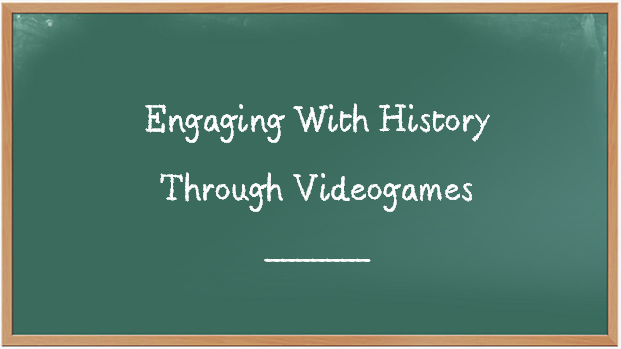
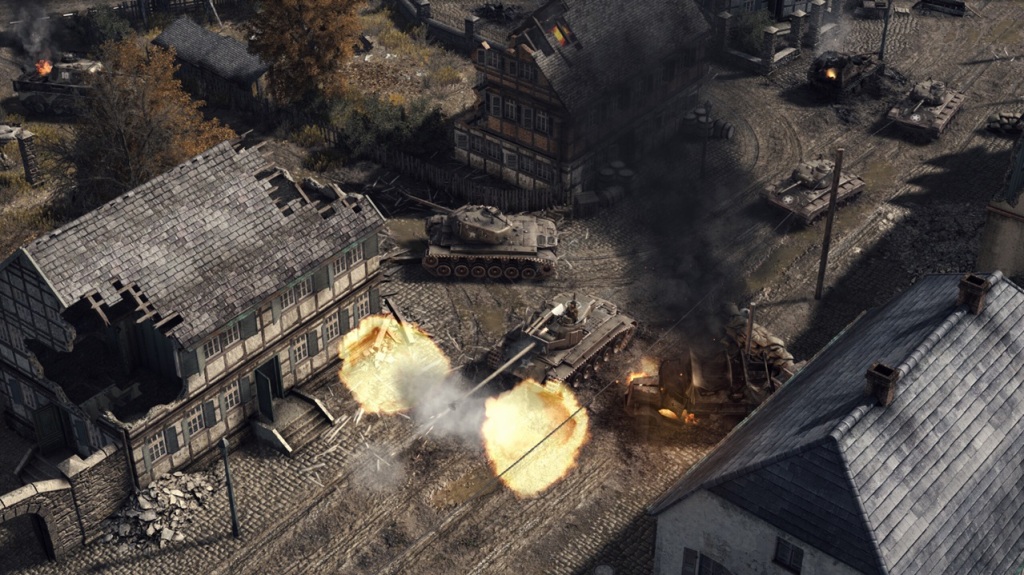
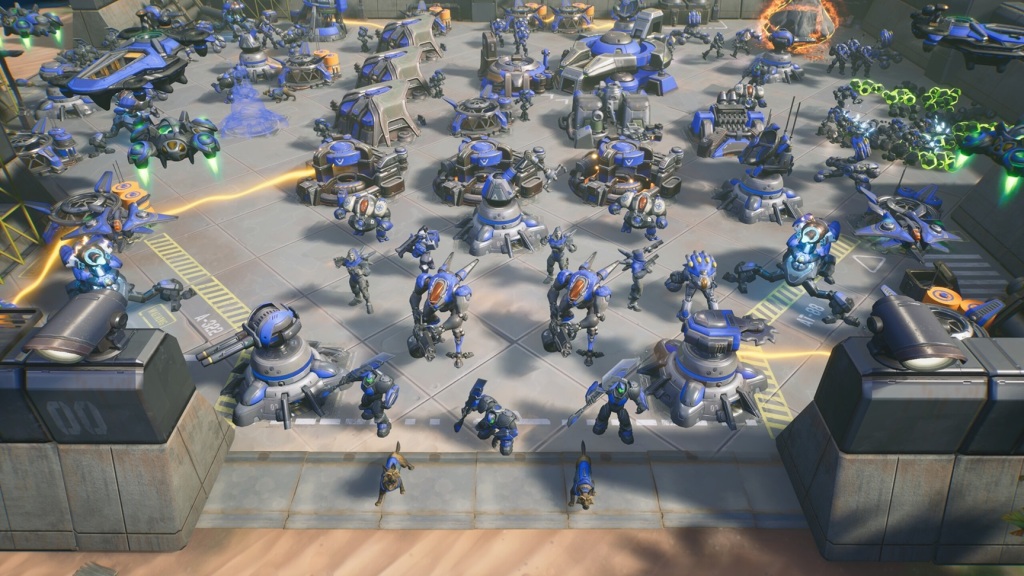
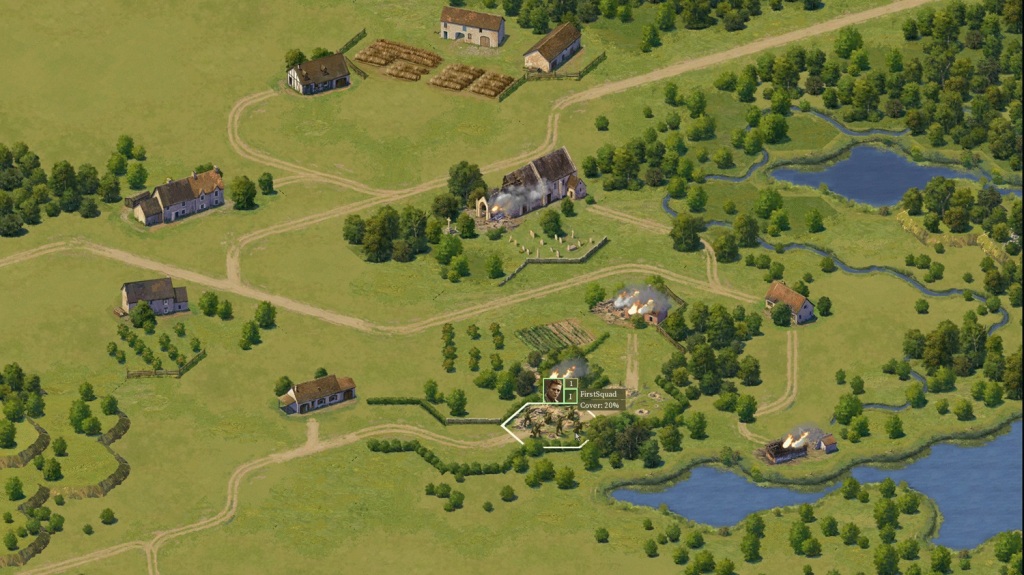
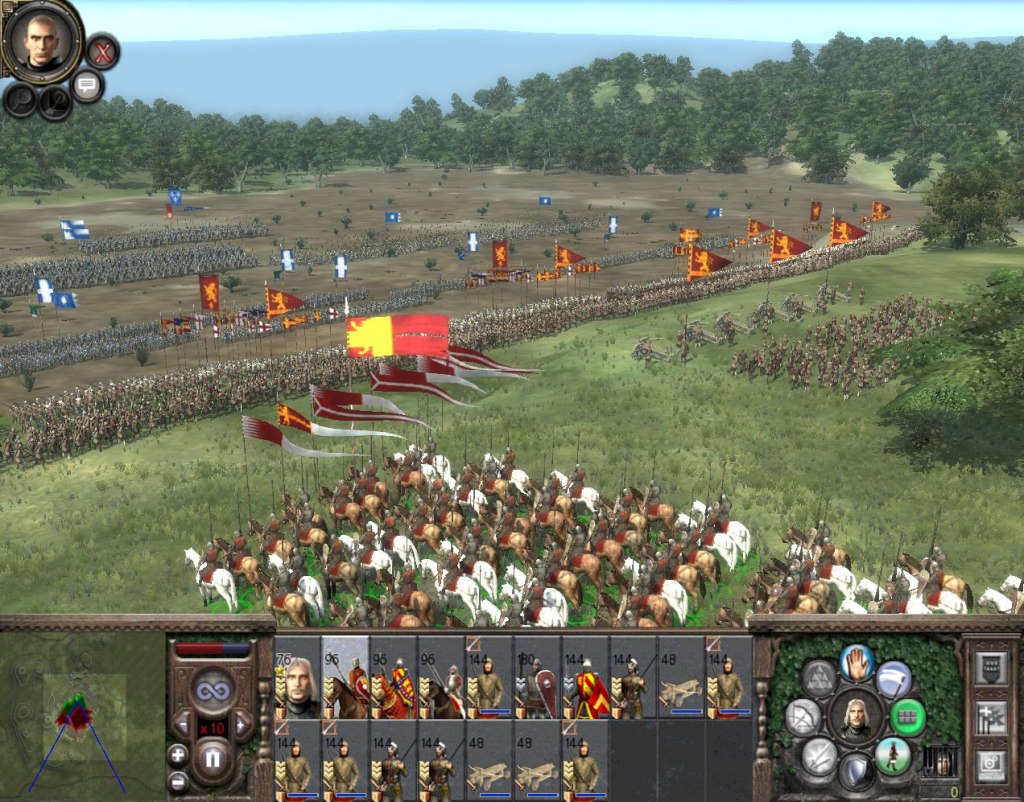
Leave a comment